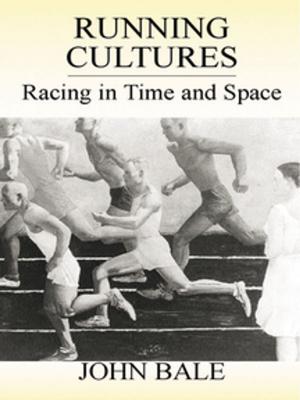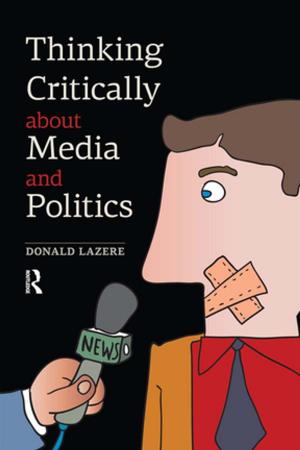Essentials of Transdisciplinary Research
Using Problem-Centered Methodologies
Nonfiction, Health & Well Being, Psychology, Research, Social & Cultural Studies, Social Science| Author: | Patricia Leavy | ISBN: | 9781315429113 |
| Publisher: | Taylor and Francis | Publication: | May 23, 2016 |
| Imprint: | Routledge | Language: | English |
| Author: | Patricia Leavy |
| ISBN: | 9781315429113 |
| Publisher: | Taylor and Francis |
| Publication: | May 23, 2016 |
| Imprint: | Routledge |
| Language: | English |
Transdisciplinary research is issue-driven, addressing contemporary social questions from a range of critical theoretical perspectives unhampered by the theoretical and methodological restrictions of traditional disciplinary boundaries. In this brief, informative guide, Patricia Leavy shows how a transdisciplinary approach can produce more effective results for researchers hoping to ameliorate social problems and foster social justice. Leavy demonstrates the value of transdisciplinary approaches in mixed methods design, and how trans approaches actually help fulfill the promises and goals of mixed methods research. She explains its relationship to multi-disciplinary and interdisciplinary research and its value in community-based and arts-based research projects. Providing the key principles and methods needed to conduct a transdisciplinary study, Leavy also offers numerous examples from multiple research sectors to show its effectiveness. Ideal as a brief introductory text for students engaged in this style of research.
Transdisciplinary research is issue-driven, addressing contemporary social questions from a range of critical theoretical perspectives unhampered by the theoretical and methodological restrictions of traditional disciplinary boundaries. In this brief, informative guide, Patricia Leavy shows how a transdisciplinary approach can produce more effective results for researchers hoping to ameliorate social problems and foster social justice. Leavy demonstrates the value of transdisciplinary approaches in mixed methods design, and how trans approaches actually help fulfill the promises and goals of mixed methods research. She explains its relationship to multi-disciplinary and interdisciplinary research and its value in community-based and arts-based research projects. Providing the key principles and methods needed to conduct a transdisciplinary study, Leavy also offers numerous examples from multiple research sectors to show its effectiveness. Ideal as a brief introductory text for students engaged in this style of research.















